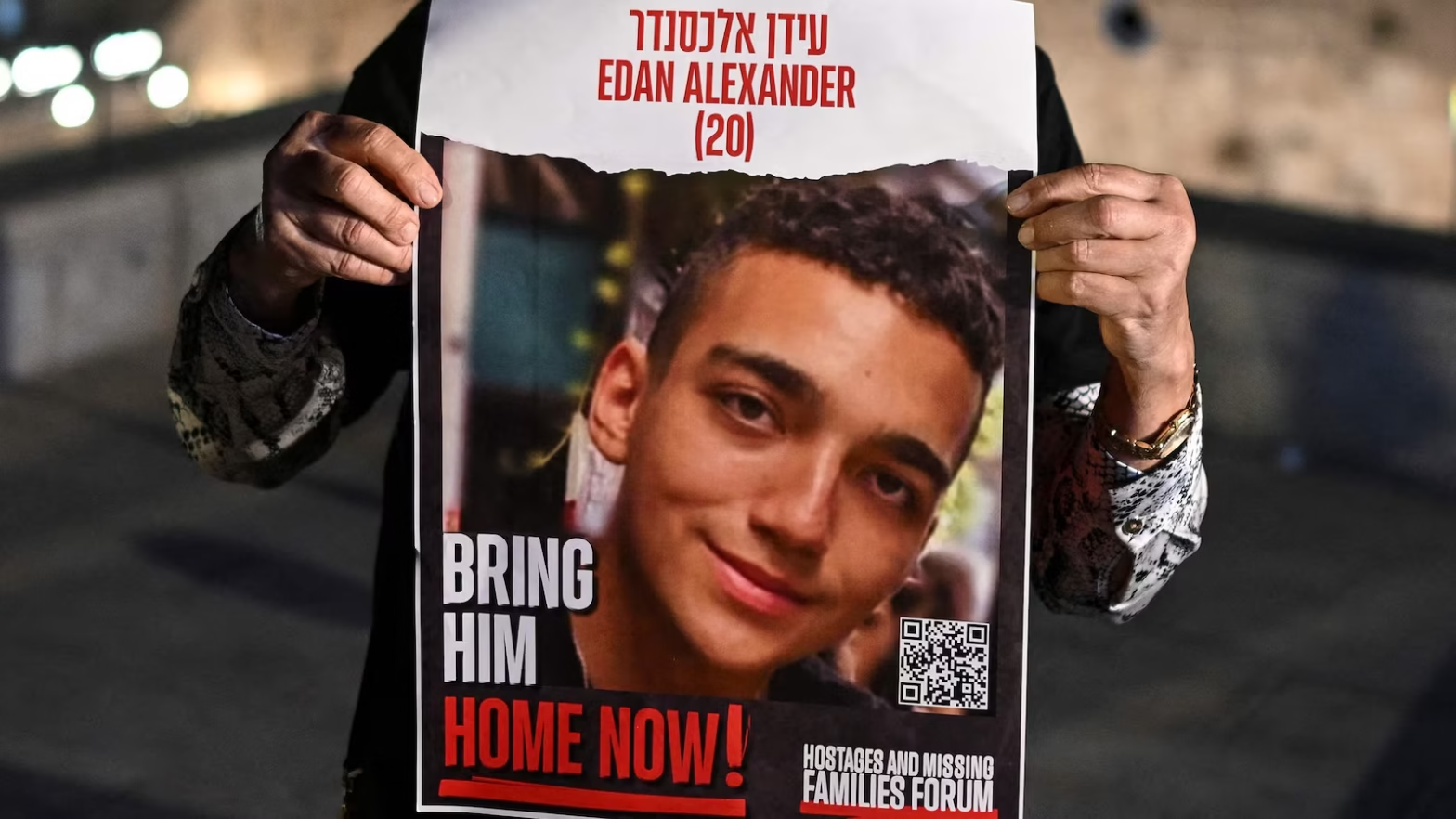by Temitope Oladeji
12/5/2025
Hamas has announced plans to release Israeli-American hostage Edan Alexander as part of ongoing efforts to secure a ceasefire in Gaza and facilitate the entry of humanitarian aid into the blockaded territory, a senior Hamas official confirmed to Reuters.
Khalil Al-Hayya, a senior figure in Hamas’s exiled leadership, said the release is being coordinated with the support of Qatar, Egypt, and Turkey.
He said, “The movement affirms its readiness to immediately begin intensive negotiations and make serious efforts to reach a final agreement to end the war and carry out a mutually agreed prisoner exchange,”.
In an official statement, Hamas confirmed that Alexander, a dual U.S.-Israeli national and an Israeli soldier, will be released as part of broader efforts to reach a truce and reopen humanitarian crossings into Gaza.
The announcement follows direct talks between Hamas and U.S. representatives held in recent days in Doha, Qatar.
According to two senior Hamas officials, the negotiations have made tangible progress, particularly on the delivery of aid to Gaza and the framework for exchanging hostages for Palestinian prisoners held in Israeli custody.
“Direct talks have taken place in Doha between the Hamas leadership and the United States regarding a ceasefire, a prisoner exchange, and the entry of humanitarian aid,” said one Hamas official.
Another official noted that discussions have advanced “notably on the case of Edan Alexander” and on conditions for a potential ceasefire.
The U.S. has informed Israel that Alexander’s release could open the door for wider negotiations aimed at freeing additional hostages.
However, Israeli Prime Minister Benjamin Netanyahu has insisted that military operations in Gaza will continue regardless of diplomatic talks.
“Negotiations will proceed under fire, with a commitment to achieving all the objectives of the war,” Netanyahu’s office said in a statement, reaffirming Israel’s stance of continuing its offensive until its strategic goals are met.
Although indirect talks involving Israel, Hamas, Qatar, Egypt, and the United States have been underway for months, which is yet to yield any durable resolution.
The Biden administration made a notable policy shift in March by engaging in direct talks with Hamas for the first time, despite the group’s designation by the U.S. as a terrorist organization.
Hamas has repeatedly insisted that any deal must include a full cessation of hostilities.
The group had initially rejected an Israeli proposal for a 45-day truce and partial hostage release, demanding instead an agreement that ends the war entirely and allows for the establishment of an independent, technocratic administration in Gaza.
“This will ensure long-term calm and stability, support reconstruction, and lift the blockade,” Hamas said in its latest statement.
Neither Israel nor the United States has issued an official response to Hamas’s recent overtures.
However, U.S. President Donald Trump reiterated a commitment to easing humanitarian suffering in Gaza, pledging renewed efforts to deliver food aid.
Washington’s envoy to Israel stated last Friday that a U.S.-backed aid delivery mechanism for Gaza is expected to begin functioning soon, amid growing international pressure to address the deepening humanitarian crisis.
Since 2 March, Israel has imposed a total blockade on Gaza’s 2.3 million residents.
Food reserves stockpiled during a brief ceasefire earlier in the year have been largely exhausted, leaving the population in urgent need of assistance.

